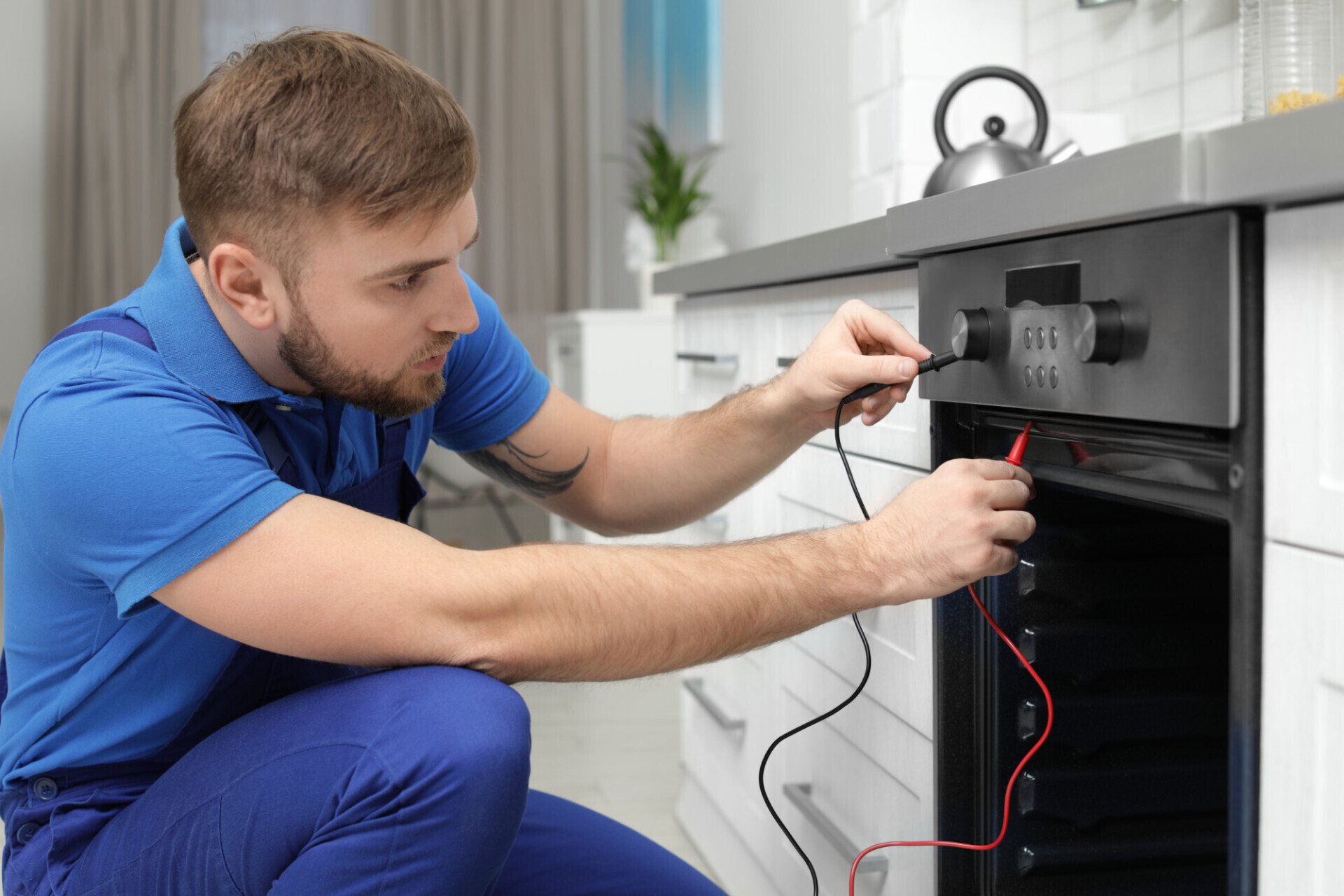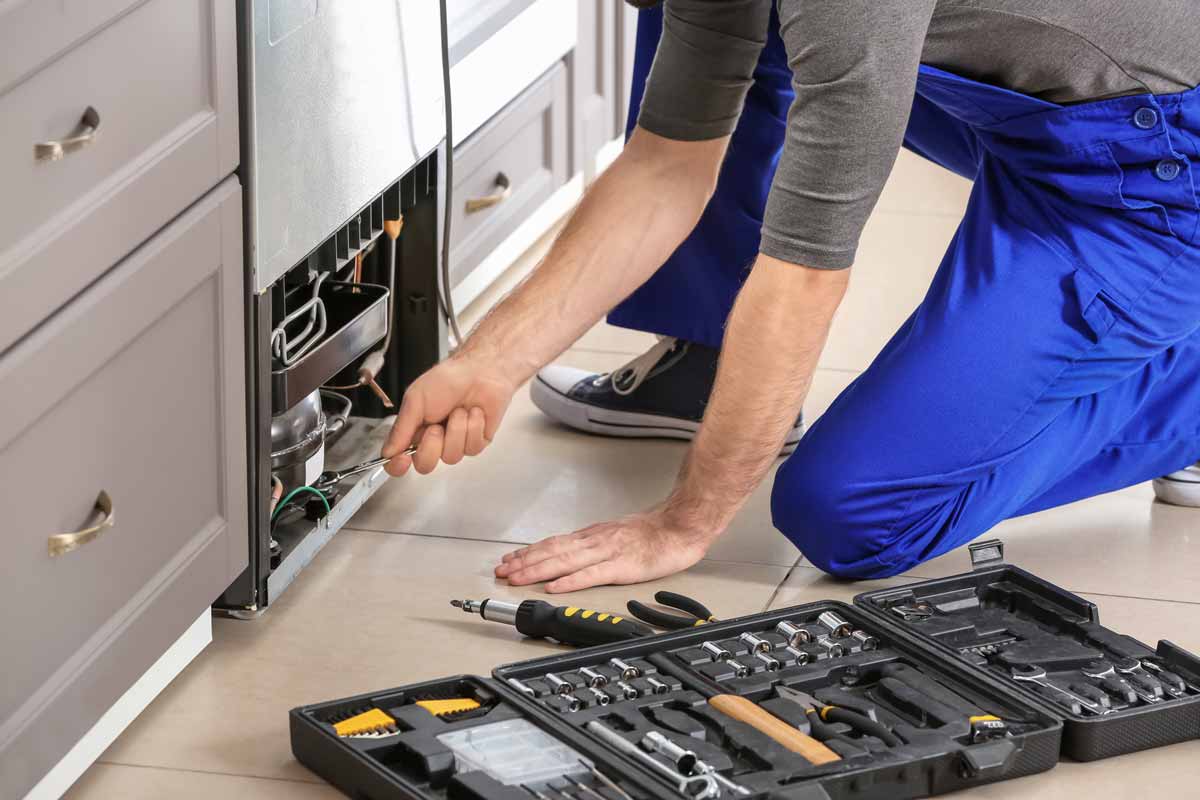Get Rid of Moldy Washer Smell – Maytag Washing machine repair Dependable Refrigeration & Appliance Repair Service
Get Rid of Moldy Washer Smell – Maytag Washing machine repair Dependable Refrigeration & Appliance Repair Service
Blog Article
The Ultimate Overview to Understanding Home Appliance Repair Service in the house
When your fridge quits cooling down or your stove refuses to heat, it can really feel frustrating. Understanding appliance fixing at home can conserve you time and cash. You'll find out to identify symptoms, make use of important devices, and comply with a methodical troubleshooting process. But before you start, there are vital safety preventative measures you require to take into consideration. What are the most common issues, and exactly how can you fix them? Let's discover the essentials.
Common Device Problems and Their Signs and symptoms
When your home appliances begin breaking down, it's vital to acknowledge the indications at an early stage. Neglecting them can cause bigger concerns and expensive repairs. For instance, if your refrigerator isn't cooling appropriately, you could see cozy places or condensation developing. This could indicate a falling short compressor or a blocked vent.Your dish washer may reveal troubles via unclean recipes or unusual noises during cycles. If you listen to grinding or clanking, it's time to investigate.A washing maker that will not spin or drain pipes can leave you with soggy washing, suggesting a clogged up drainpipe or a malfunctioning pump.Lastly, if your oven's temperature seems off or it takes permanently to pre-heat, you may be dealing with a defective thermostat. By staying alert to these symptoms, you can address problems before they escalate into major repair services.
Essential Devices for Device Repair
When you're taking on appliance repairs at home, having the right devices is essential. Fundamental hand tools like screwdrivers and pliers will certainly aid you disassemble and take care of numerous devices, while electric screening devices ensure you're functioning securely with electrical wiring. Allow's look at what you need to start on your fixing journey.
Fundamental Hand Tools
Having the right tools is essential for efficient home appliance fixing in the house. Beginning with a reliable screwdriver set, including both flathead and Phillips kinds, as screws are typical in appliance assembly. Pliers are also vital; they help with gripping, turning, and cutting cables or little elements. A set of needle-nose pliers can get to tight places quickly. You'll need an excellent adjustable wrench for tightening up or loosening up nuts and screws. An utility blade is helpful for reducing via packaging or insulation. Lastly, do not forget a strong workbench or surface to securely organize your devices and parts. With these fundamental hand devices, you'll be well-prepared to deal with most appliance repair services that come your method.
Electric Testing Instruments
Alongside basic hand tools, electrical screening tools play an important function in home appliance repair work. These devices help you identify electrical problems and warranty devices work safely. A multimeter is crucial; it measures voltage, current, and resistance, enabling you to pinpoint issues swiftly. A non-contact voltage tester is an additional must-have, allowing you discover real-time wires without making direct call, improving your safety and security. Secure meters are terrific for measuring existing circulation in cables without separating them, conserving you time and effort. Furthermore, circuit testers can quickly examine if outlets are operating properly. By utilizing these tools, you'll improve your troubleshooting procedure and enhance your fixing abilities, making device maintenance a lot easier.
Step-by-Step Overview to Diagnosing Home Appliance Issues
When your device acts up, it can be irritating, but diagnosing the concern does not have to be overwhelming. You'll find out to recognize common issues and use reliable fixing strategies. Allow's stroll through the steps to get your home appliance back in functioning order.
Common Appliance Problems

Fixing Techniques Clarified

Fixing Significant Cooking Area Appliances: A Closer Look
Have you ever questioned exactly how to deal with common issues with your kitchen area home appliances? Fixing major kitchen appliances like refrigerators, ovens, and dishwashers can be much easier than you believe. Beginning by recognizing the issue-- whether it's a refrigerator not cooling or an oven that will not heat up. Usually, an easy reset or checking the source of power can resolve the issue.For fridges, clean the condenser coils and check the door seals. If your stove's not home heating, inspect the home heating element and thermostat. Dishwashing machines might just need a tidy filter or a reset to obtain them back at work. Always unplug the device prior to diving into repair work to assure your safety.Don' t fail to remember to speak with the customer handbook for particular fixing ideas associated with your version. With a little patience and the right tools, you can with confidence deal with home appliance repairs and conserve cash at the same time!

Fixing Washing Devices: Tips and Techniques
When your washing home appliances start acting up, it can really feel overwhelming, yet troubleshooting them does not have to be a problem. Begin by inspecting the power supply. Confirm the home appliance is plugged in and the outlet is operating. Next off, examine the door or cover button; a faulty switch can stop the device from operating.For washing machines, if it's not spinning, inspect for out of balance lots. Redistributing the clothes might solve the issue. If your dryer isn't heating, tidy the dust filter and check the vent for blockages.Listen for uncommon sounds; they can indicate an issue. If your device is leaking, inspect the tubes for cracks or loose links. Paper any kind of mistake codes shown on electronic screens, as they can lead you in determining the concern. Lastly, seek advice from the customer guidebook for particular repairing suggestions connected to your model.
Security Preventative Measures to Take During Services
Prior to you begin any type of device repairs, it's vital to prioritize safety to avoid crashes or injuries. Disconnect the home appliance or turn click to read more off the circuit breaker to ensure no power reaches it while you function. Use shielded tools to decrease the threat of electric shock. Put on security goggles and gloves to shield yourself from sharp sides or debris (Fixes washers and dryers Oro valley Dependable Appliance Repair).Make specific your office is tidy and well-lit, so you can see what you're doing. Maintain kids and pet dogs away from the location to prevent diversions and possible hazards. If you're dealing with gas home appliances, be extra careful; check for leakages prior to proceeding.Take your time, and do not rush through fixings. If you really feel unsure concerning any kind of step, it's better to pause and study than to presume. Complying with these safety measures will useful content help produce a safer setting for your DIY home appliance repair job
When to Call a Specialist for Aid
How do you recognize if it's time to employ a professional for home appliance repair work? If you've tried standard troubleshooting without success, it's a clear sign. For circumstances, if your device still won't begin or reveals uncommon sounds after resetting it, don't think twice to seek specialist help.When you discover leakages, smoke, or shedding scents, prioritize safety and security and call a pro quickly. These problems can lead to more substantial damages or present risks to your home.Also, if your device is under guarantee, calling an expert is often the ideal route. They can guarantee that repair services will not void your guarantee, saving you money in the long run.Finally, if you're unclear or awkward with intricate fixings, it's a good idea to leave it to the experts. Bear in mind, tackling complicated problems without the appropriate experience can result in expensive errors. Trust a specialist when unsure!
Frequently Asked Inquiries
How Can I Stop Appliance Issues in the Future?
To stop appliance troubles in the future, you must do routine upkeep, look for damage, tidy filters, and prevent overloading. Staying proactive will certainly aid prolong their life-span and maintain them running smoothly.
What Are one of the most Common Do It Yourself Home Appliance Fixing Mistakes?
You could ignore safety and security preventative measures, skip troubleshooting actions, or make use of incorrect tools when trying DIY appliance fixings. Hurrying the process or disregarding maker guidelines can lead to even more considerable issues and costly blunders. Remain patient and informed!
How Do I Know if a Component Demands Replacement?
You can inform if a part needs substitute by looking for unusual sounds, leaks, or irregular performance. If the device has a hard time to run correctly or reveals noticeable damage, it's likely time for a substitute.
Can I Utilize Generic Components for Device Repairs?
Yes, you can use generic parts for device repairs, but identify they work - Dependable Refrigeration & Appliance Repair Service Dryer repair near me. Generic components could conserve you cash, but they could affect efficiency or longevity, so evaluate your options carefully before deciding
What Service Warranties Cover Appliance Fixes?
A lot of home appliance warranties cover fixings for manufacturing defects, yet they commonly exclude damage from misuse. more helpful hints Examine your guarantee terms carefully, as some may require making use of qualified specialists and initial components for insurance coverage to continue to be legitimate.
Report this page